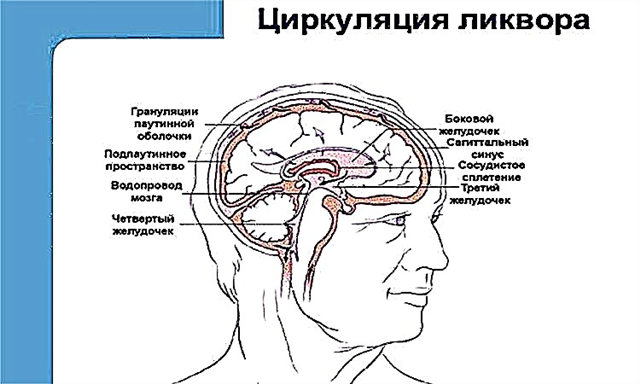Cough is an atypical symptom of tonsillitis, signaling the development of post-infectious complications. Bacterial sore throat is never accompanied by rhinitis or cough. The presence of symptoms indicates a viral infection of the upper airways. If, after eliminating the main signs of sore throat, the child coughs, it is advisable to seek help from a pediatrician. Forced expiration can occur due to irritation of the cough receptors in the pleura, trachea, larynx, bronchi or paranasal sinuses. Untimely destruction of the viral flora is fraught with the development of obstructive bronchitis, chronic rhinitis, laryngitis and other ENT diseases.
What is a cough?
 Cough is a sharp exhalation through the mouth that occurs as a result of the contraction of smooth muscles in the airways. The cough act is one of the protective and adaptive reactions that provide effective cleansing of the airways from mucous secretions, purulent exudate, pathogens, etc.
Cough is a sharp exhalation through the mouth that occurs as a result of the contraction of smooth muscles in the airways. The cough act is one of the protective and adaptive reactions that provide effective cleansing of the airways from mucous secretions, purulent exudate, pathogens, etc.
An involuntary physiological reaction occurs due to irritation of the receptors located in the ciliated epithelium. Catarrhal processes in the mucous membranes of the ENT organs lead to tissue edema and mechanical irritation of the receptors.
Ineffective coughing up of a viscous secretion can lead to the development of severe complications such as pneumonia, atelectasis (collapse of the lung), obstructive bronchitis, etc.
It should be understood that a cough reaction is only a sign signaling inflammation of the upper or lower airways. The way to relieve the symptom depends on the type of cough, which can be wet or dry. Symptomatic treatment can aggravate the child's well-being and lead to disastrous consequences.
Important! The simultaneous administration of drugs of antitussive and mucolytic (expectorant) action leads to stagnation of mucus in the bronchi.
Cough reasons
In most cases, a cough reaction occurs as a result of the defeat of the ENT organs by viruses. Against the background of a general decrease in the body's resistance, provoked by tonsillitis, opportunistic microorganisms begin to multiply actively. In the places of localization of the viral flora, inflammation and edema of the mucous membranes occurs, which leads to the onset of a cough syndrome.

If for a long time after the elimination of sore throat the child continues to cough, this may indicate the development of the following pathologies:
- rheumatic fever - post-infectious inflammation of the connective tissues, accompanied by shortness of breath, heart palpitations and shortness of breath;
- chronic rhinitis - an inflammatory process in the mucous membrane of the nasopharynx, stimulating the formation of an excess amount of mucus flowing down the walls of the pharynx; sputum irritates cough receptors located in the airways, which leads to forced exhalation;
- pharyngitis - catarrhal inflammation of the mucous membranes of the pharynx, which occurs as a result of the development of viruses; accompanied by a strong barking cough followed by sputum separation;
- bronchitis - inflammation of the bronchial mucosa and the main parts of the respiratory system; a characteristic manifestation of the disease is a dry, incessant cough.
Often, the appearance of an unpleasant symptom after tonsillitis indicates an incorrect diagnosis. In some cases, cough syndrome occurs due to the parallel development of viral rhinitis.
Treatment principles
How to eliminate a cough after a sore throat in a child - what are the reasons and principles for treating children? Drug therapy is carried out only after an accurate diagnosis. The irrational use of antibacterial and antiviral agents creates an additional burden on the detoxification organs, which significantly increases the risk of complications.
To stop the cough syndrome, they often use:
 antiviral drugs - destroy pathogens that provoke inflammation of the mucous membrane of the airways; solutions for washing the nasopharynx - eliminate catarrhal processes in the nasal canals and paranasal sinuses, which prevents irritation of the cough receptors;
antiviral drugs - destroy pathogens that provoke inflammation of the mucous membrane of the airways; solutions for washing the nasopharynx - eliminate catarrhal processes in the nasal canals and paranasal sinuses, which prevents irritation of the cough receptors;- antibacterial agents - inhibit the development of pathogenic bacteria, which helps to eliminate pathogenic flora in the ENT organs;
- oropharyngeal rinsing solutions - destroy viruses and bacteria, as a result of which local immunity increases;
- antitussives - inhibit the activity of cough receptors, which prevents forced expiration;
- mucolytic drugs - reduce the viscosity of mucus in the airways, as a result of which its evacuation is accelerated.
The duration of the use of antitussives should not exceed 3 days. Otherwise, there is a risk of accumulation of liquid secretions in the bronchi.
Medication Review
It should be noted that tonsillitis itself does not provoke the appearance of a cough syndrome. The onset of a symptom signals the spread of inflammation to adjacent tissues and organs. Untimely relief of pathological processes can cause the development of chronic rhinitis, sinusitis, otitis media, pneumonia, etc.
If the child begins to cough after the symptoms of sore throat have been eliminated, the following medications can be used to treat him:
| Drug name | Operating principle |
| "Codelac" | Antitussive agent that suppresses the functioning of cough receptors, which leads to the elimination of dry cough |
| "Ambrohexal" | Mucolytic syrup that stimulates the activity of serous cells in the ciliated epithelium. Promotes liquefaction and evacuation of pathological secretions from the airways |
| "Viferon" | An antiviral immunostimulant that enhances the activity of T-helpers against pathogenic virions. Stimulates the resorption of infiltrates in the mucous membrane, reducing swelling and increasing nonspecific immunity |
| "Aqua Maris" | Sterile mineral-rich water used to flush the nasopharynx. Restores the normal pH level in the nasal mucosa, thereby increasing local immunity |
| "Furacilin" | Solution for washing the mucous membrane of the oropharynx, which has a pronounced antimicrobial effect against gram-positive and gram-negative microbes. Promotes the regression of catarrhal processes and the regeneration of the ciliated epithelium |
| "Ingalipt" | Antiseptic spray for the treatment of palatine tonsils and throat mucosa. Destroys pathogens of any etiology; |

 antiviral drugs - destroy pathogens that provoke inflammation of the mucous membrane of the airways; solutions for washing the nasopharynx - eliminate catarrhal processes in the nasal canals and paranasal sinuses, which prevents irritation of the cough receptors;
antiviral drugs - destroy pathogens that provoke inflammation of the mucous membrane of the airways; solutions for washing the nasopharynx - eliminate catarrhal processes in the nasal canals and paranasal sinuses, which prevents irritation of the cough receptors;

